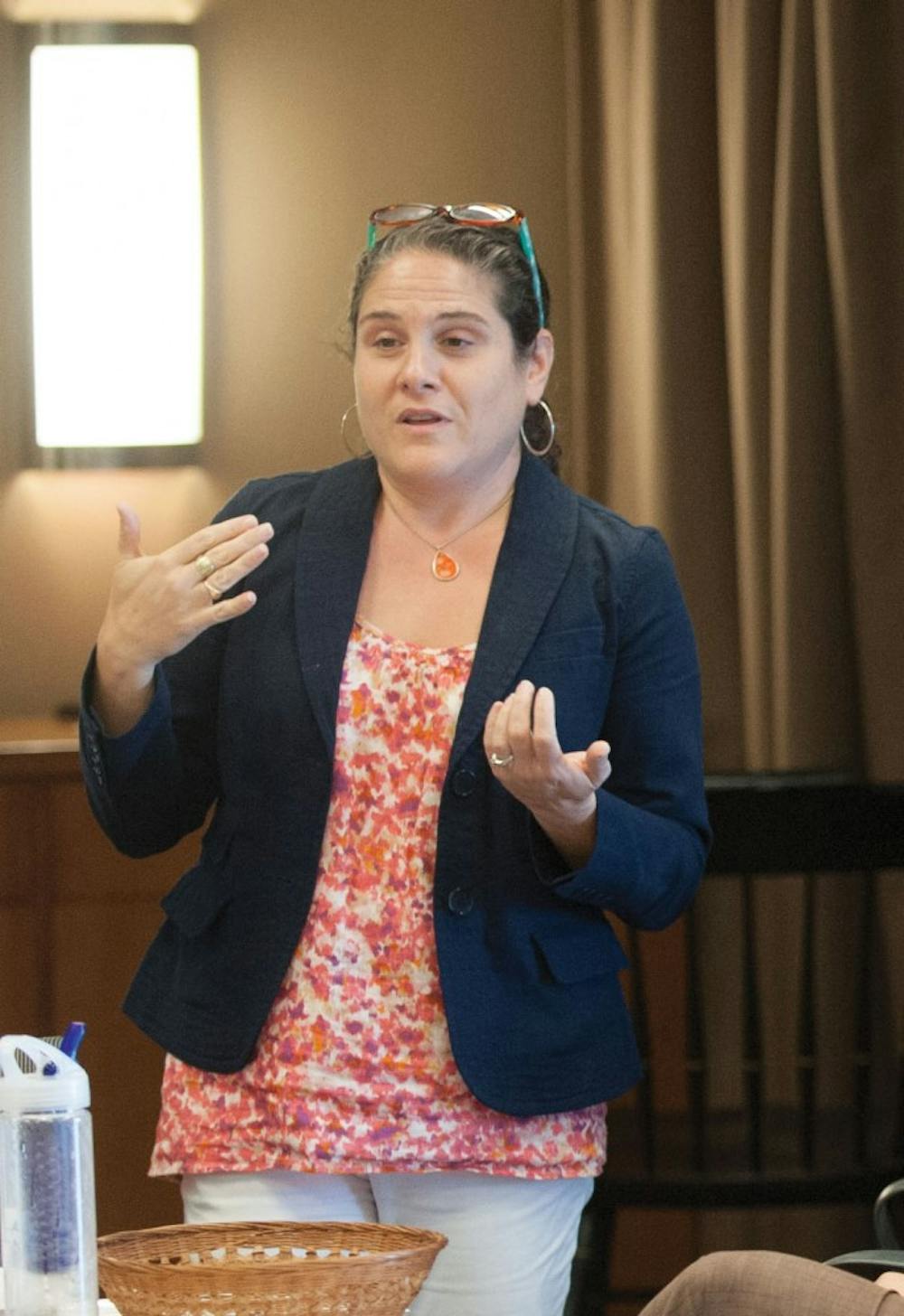ABC aired an exclusive interview with former Associate Dean Nicole Eramo on Friday, three days before the $7.85 million lawsuit she filed against Rolling Stone magazine, Sabrina Rubin Erdely and Wenner Media, Inc. begins trial.
Eramo also released deposition testimony videos to ABC to be used for the television segment. However after attorneys for Rolling Stone, Erdely and Wenner Media, Inc. filed an emergency motion for sanctions against Eramo and her attorneys, a judge agreed to throw out the videos as court exhibits.
Erdely mentioned Eramo 31 times in the article even though Eramo was never actually interviewed because of University privacy laws. In her interview with ABC, Eramo shared how the article written by Erdely misrepresented her support of Jackie by making it seem like she tried to stop Jackie from going public with her claims of sexual assault.
Erdely quoted Eramo in the article as having said, “Nobody wants to send their daughter to a rape school,” in an attempt to save the University’s reputation. However, in the ABC exclusive, Eramo said she did not and would never have said anything like that to an alleged victim of sexual assault at the University.
When asked during the interview if Jackie was making it up, Eramo said, “I can’t say, but I know I didn’t say it.”
The interview showed Eramo in a sympathetic light although she was limited in what she could discuss about her interactions with Jackie. To stay in compliance with the Family Educational Rights and Privacy Act, she told ABC News she could only discuss what was contained in court documents.
Libby Locke, Eramo’s attorney, did not comment on Eramo’s appearance on ABC, but said she strongly believes the article was written with malice and disregard for truth.
“After two years of litigation, Dean Eramo’s legal team has uncovered damning evidence of Rolling Stone’s reckless disregard for the truth,” Locke said in an email statement. “In fact, this may well be this jurisdiction’s clearest case of actual malice in its history.”
Locke said Erdely and Rolling Stone decided to write their story using a false narrative about Eramo even though they knew what had actually happened was different.
“Rolling Stone knew that — far from suppressing Jackie’s alleged rape — Dean Eramo took Jackie to the police multiple times,” Locke said. “But Rolling Stone and Ms. Erdely didn’t let that inconvenient fact get in the way of the narrative they set out to tell.”
University Law Prof. Edward White said Eramo may have taken the interview with ABC because she wanted to talk about some of the negative effects the article had on her in public and have the opportunity to speak freely.
“From that perspective, she could be said to be less interested in winning the suit than in ‘telling the story’ of how the article’s portrayal of her served to lower her reputation,” White said in an email statement. “She may believe she would have a better opportunity to ‘tell her story’ in a TV interview than as a plaintiff in court.”
White also noted the interview may have been a strategic move to influence a jury even though Eramo will still need to show in court that false statements of fact were made about her and caused damage to her reputation.
“If she believes she can show that, an interview about the negative consequences of those statements for her might help convince a jury that Rolling Stone knew that if it published those statements, Eramo’s reputation would be lowered, making its conduct all the more reprehensible if it knew the statements published about her were false,” White said.
When picking the jury for court cases, lawyers get a series of peremptory challenges to prospective jurors and can exclude challenged jurors for any reason.
“If I were counsel for Rolling Stone … I would ask any prospective juror whether they had seen the interview … and disqualify anyone who had seen it,” White said. “But the number of peremptory challenges is limited, and it may be that virtually everyone in the jury pool will have had an opportunity … to see [the interview].”
Locke said the case is clear cut.
“The Columbia Journalism School condemned Rolling Stone, and we are confident that a jury will do so as well,” Locke said.







